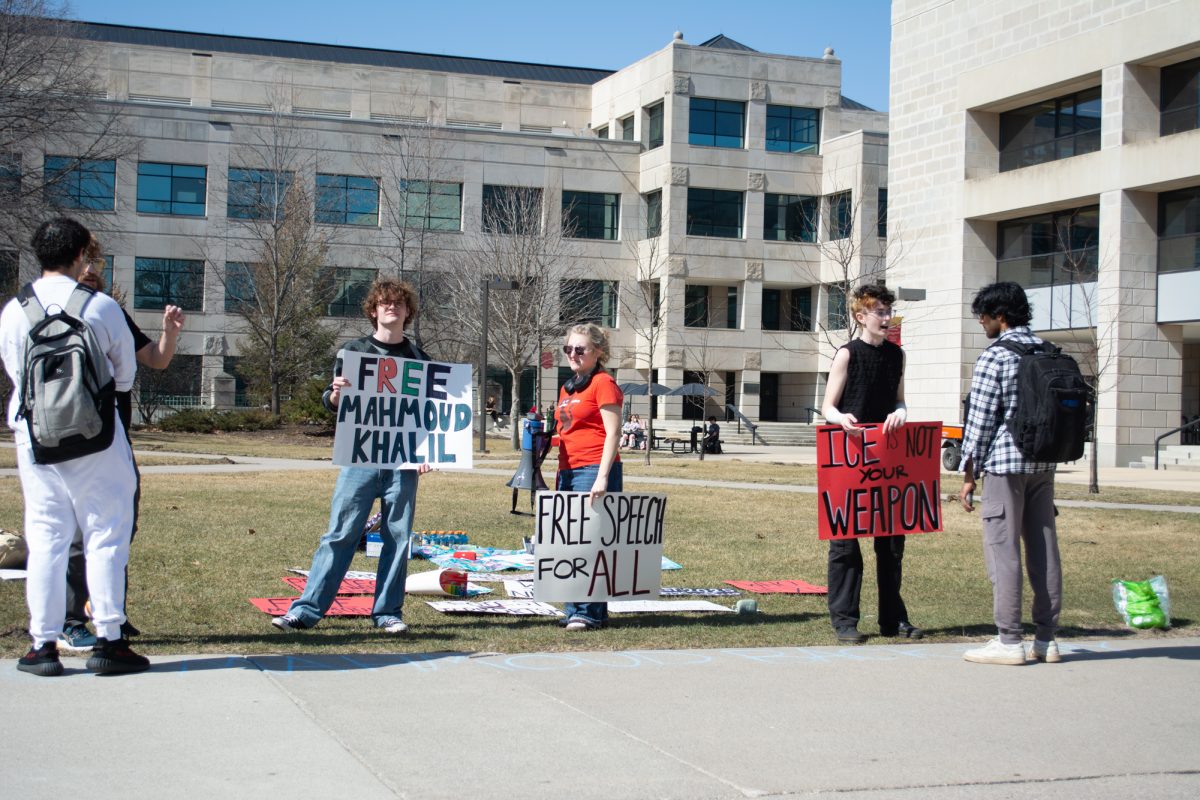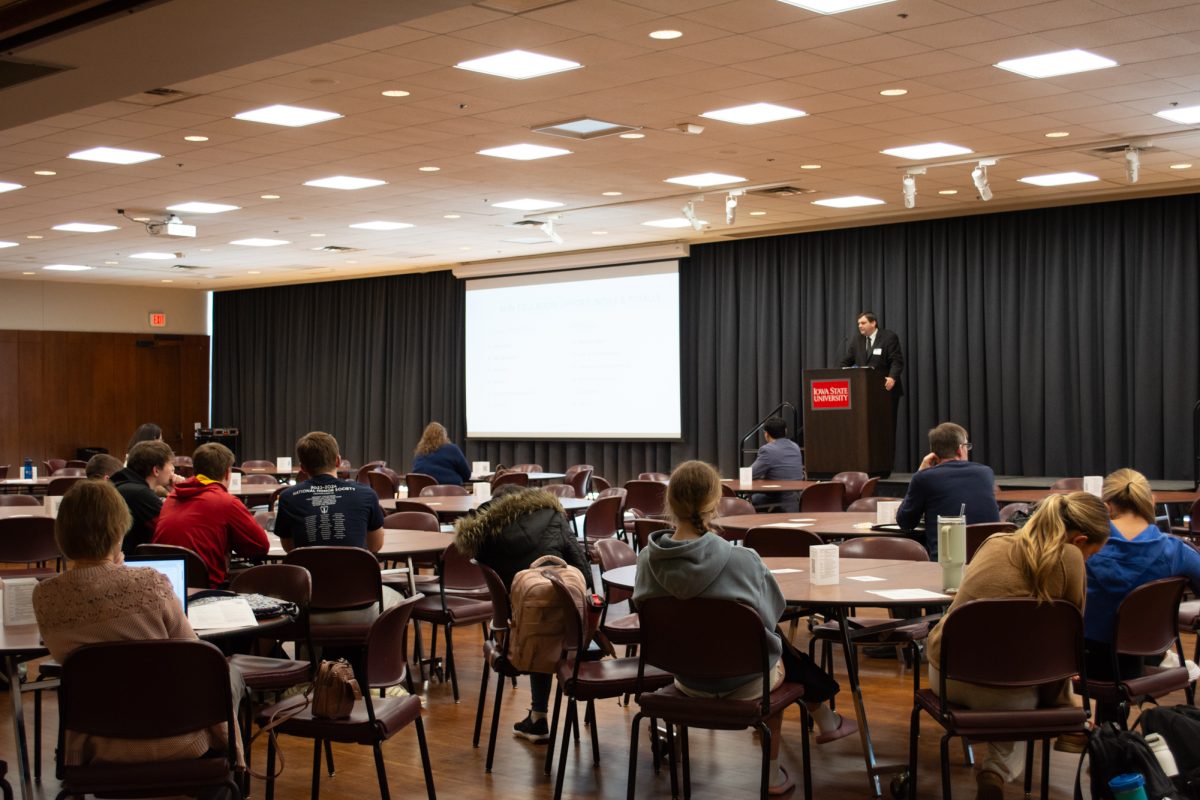A world many don’t understand
April 16, 1997
Recently, as I was riding the red and gold limousine (Cy-Ride), I overheard a conversation between two other students. I usually don’t eavesdrop, but this particular time I couldn’t help myself. After all, they were standing right next to me, and they weren’t really talking that quietly. That was probably because they thought I was listening to my CD player, since I had my headphones on. (The batteries had just gone dead as I got on the bus, and it was too cramped on there to change them.)
So as I quietly stood there, they began to talk about the recent renovations at the Black Cultural Center. Now remember, I wasn’t eavesdropping; I just couldn’t help but overhear what they were saying. Besides, their chosen topic of discussion kind of caught my attention.
These two individuals began expressing their displeasure with the university’s $75,000 donation to the BCC for help with the renovations. One individual even said the BCC should have raised the money on its own.
Then my two fellow Cyclones started discussing their belief that there isn’t a need for a BCC. One young man even called the BCC an eyesore and said it’s a good thing it isn’t really “on” campus, because it could be seen as an embarrassment to other ISU students.
He went on to say it is stupid for there to be a Black Cultural Center that is supposed to be supportive to black students on campus. He elaborated by saying that black students have all kinds of support systems on campus, like Minority Student Affairs, while the white students have nothing.
According to this student, he “can’t understand” why black students say they have so many problems. He “can’t understand” what they say that they go through. He “can’t understand” what the big deal is. He “can’t understand” why they feel that they are treated unfairly.
It has occurred to me that there are many people on campus who share this view. A view that expresses the feelings that many students keep inside. For those who do share this feeling, I offer this open invitation. Open the door and come inside — welcome to my world.
This is a world I share with many other students on this campus. A world many don’t understand. A world that is our own and dwelled in by our own. A world on which I will elaborate. Black is not the only color in this world. There are yellow, white, red and brown.
In the world of a black student there are two understandings: the understanding of what it means to be who you are and the understanding of what it means to be the other guy. I understand the position of wanting the BCC to raise the money on its own. I even understand the disagreement with the university’s donation. This is understanding the other guy.
But I also know that the BCC was built by people who know my plight here and understand what it means to be me and to be here. This is understanding who I am.
You see, growing up in the American society and the American educational system, I understand and know what it is like to be a white male in this country because that is what’s always being perpetuated to me. I am smacked upside the head with the visuals of white male America wherever I go, while white America may only catch glimpses of “black America” on the news.
If you believe there is no support system for white students — look again. It’s called the system. The system has been geared for you, ever since the beginning. It has made tiny provisions for me but is still directed at your achievement, not mine. I must use the provisions and every misconstruction to my advantage in order to achieve.
You cannot understand my situation because it is not yours. If you want to, fine, do so. I encourage you to try if you feel you must. Don’t misunderstand me, though, I don’t need you to and no one is asking you to. I’m just telling it like it is.
I’m not telling anyone that they need to understand me. Just remember that in this world, yours is not the only one. Try to put yourself in another’s shoes and then walk a mile in his loafers. After you have done that, talk to him and ask him why he feels as he does. Ask him questions — don’t just live on your own misinformation. Then maybe, just maybe, you will have some understanding of what that person is going through.
Rhaason Mitchell is a junior in journalism and mass communication from Chicago.






